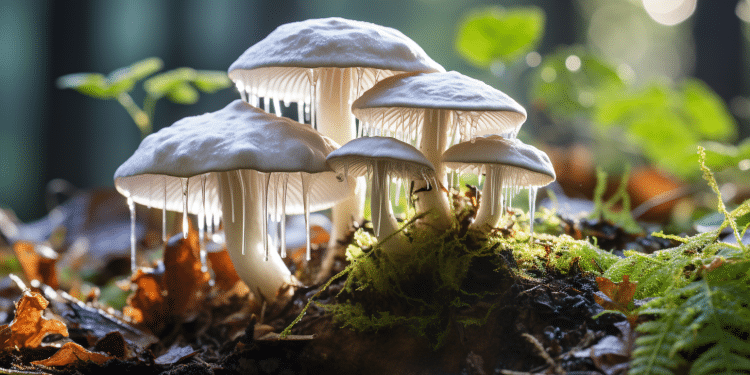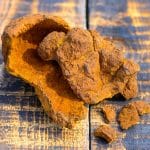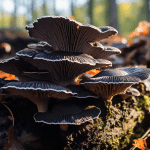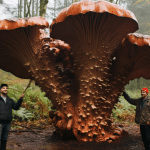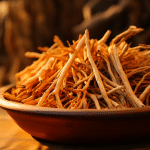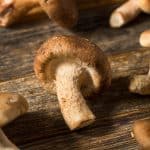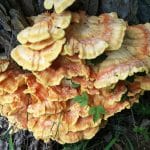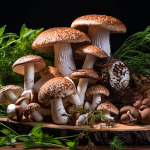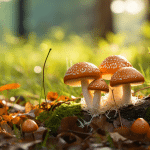We hear about people using lion’s mane for anxiety quite often, so we dug deeper into current clinical studies. We wanted to find out whether or not this functional mushroom enhances mental health, and in particular, if it helps reduce anxiety. What follows is an in-depth summary of our findings regarding the effects of lion’s mane mushroom for anxiety.
Does Lion’s Mane Provide Anxiety Relief?
According to studies, lion’s mane mushroom does appear to decrease minor symptoms of anxiety and depression. In addition lion’s mane has the ability to make you feel more relaxed and focused, these functional mushrooms might be able to improve problems with sleep, which is a common symptom of anxiety disorders.
A Japanese study examined the effects of lion’s mane supplements on the levels of anxiety and depression among menopausal women. Women were tested for their initial levels of irritability and anxiety, and were given the lion’s mane extract for 4 weeks. When tested again for these measures, the women taking a lion’s mane supplement scored significantly lower than their control-group counterparts, meaning that they showed less symptoms of stress and anxiety.
Does Neurogenesis Affect Anxiety?
Research suggests that lion’s mane appears to help with the production of neural growth factors that contribute to neurogenesis. One study examined the link between neurogenesis and anxiety, concluding that decreased neurogenesis may be associated with increased anxiety-related behaviors. In other words, there appears to be an inverse relationship between new neurofiber production and levels of anxiety experienced by individuals. An animal study seems to support the idea that lion’s mane powder may help with neural growth, and thus, decrease anxiety.
Mice given the fruiting body extract from Hericium erinaceus (lion’s mane) showed signs of neurogenesis, especially in the brains hippocampus. In addition, they showed less signs of anxiety-like behaviors, which confirmed the mushrooms potential to produce anti-anxiety effects.
Lion’s Mane and Anxiety-Related Sleep Disorders
Lion’s mane extract seems to ease one of anxieties most common symptoms, trouble sleeping. A clinical trial investigated the effects of lion’s mane mushroom on the sleep quality and overall wellbeing of female students during the especially stressful examination period. The students reported feeling significantly more relaxed and had a significant improvement in their sleep patterns after using a lion’s mane mushroom extract for 4 weeks.
Conclusion About Lion’s Mane and Anxiety
Although more research is needed regarding lion’s manes effects on anxiety, we can deduce that taking this mushroom may be beneficial for the nervous system as a whole, as well as reducing symptoms related to anxiety based on the studies we have thus far that were measuring anxiety.
More research in humans is needed to understand the basic mechanisms underlying lions mane and its effects on anxiety. Given the lack of drawbacks of taking lion’s mane, its low cost, lack of side effects, and high accessibility, it might make sense to incorporate this mushroom into your diet as a way of alleviating symptoms of anxiety.
Lion’s Mane Dosage for Anxiety
There is no ideal dosage that absolutely eases everyone’s anxiety. While some report taking around 750-1000mg a day, others have taken as much as a couple of tablespoons of powdered lions mane mushrooms (about 5,000mg) to experience the soothing effects from lion’s mane mushroom. So, it is best to start off at a lower dose and slowly build up to a dose you find works well for you.
You can find our favorite capsules, powders, and tincture’s on the following pages of our website and learn more about each individually:
Click here for Our Favorite Lion’s Mane Supplements
Click here for Our Favorite Lion’s Mane Powders
Click here for Our Favorite Lion’s Mane Tinctures
Click here for Our Favorite Lion’s Mane Gummies
More on Lion’s Mane Mushrooms and Anxiety
Although lion’s mane has been a staple in Chinese medicine for centuries, the Western world is only beginning to understand the numerous health-enhancing properties of this mushroom. It seems this saprotrophic mushroom may be useful in treating everything from Alzheimers disease, depression, and diabetes. Due to its large supply and promising potential, health enthusiasts began to promote the medicinal benefits of lion’s mane mushrooms. However, there is so much more to be learned about these adaptogenic mushrooms, and specifically, about their application as an alternative to medications when treating mental health issues.
What is Anxiety?
Anxiety is a mental health condition that causes physical, emotional, and behavioral symptoms. According to the National Institute of Mental Health, about 19% of American adults have some kind of anxiety disorder, and prevalence is somewhat higher among women than men.
What are the Different Types of Anxiety
There are five main types of anxiety disorders. These disorders have some symptoms in common, such as excessive worrying with no obvious reason, but they also have their own unique sets of symptoms.
- generalized anxiety disorder (GAD)
- post-traumatic stress disorder (PTSD)
- panic disorder
- obsessive-compulsive disorder (OCD)
- social anxiety disorder
More on Generalized Anxiety Disorder
GAD is the most common type of anxiety.
restlessness or feeling on edge getting tired easily experiencing muscle tension difficulty concentrating exaggerated feelings of worry without an apparent cause irritability sleep issues (difficulty falling asleep or staying asleep)
Additional Resources:
Lion’s Mane Mushroom for Nerve Regeneration
Does Lion’s Mane Mushroom Improve Memory?
Updated 10/12/2022
